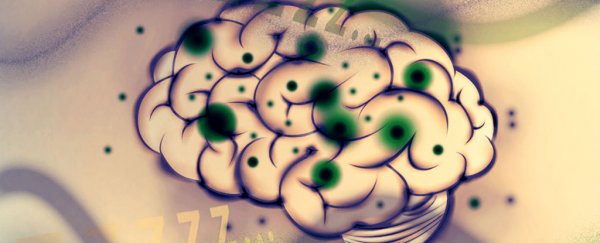We're either asleep or awake, right? Not necessarily: neuroscientists in the US have discovered a circuit inside the brain that can send small regions into snooze mode, even while the rest of the brain stays awake. This process could help us to consolidate our memories more effectively, and the researchers suspect they can control it using low-powered lasers.
The circuit sits inside the thalamic reticular nucleus, or TRN, relaying signals to the thalamus and then the cortex. These signals can include pockets of the slow, oscillating brain waves that indicate a state of deep sleep. These slow oscillations are also prevalent when someone is in a coma or under a general anaesthetic.
The team from MIT thinks the TRN could be getting specific parts of the brain to act in sync via these wave patterns, and this would potentially enable them to share information such as memories more easily. It might also be causing that feeling of being 'zoned out', where you find it hard to stay awake, even in the middle of an activity.
"During sleep, maybe specific brain regions have slow waves at the same time because they need to exchange information with each other, whereas other ones don't," said one of the researchers, neuroscientist Laura Lewis.
Recently, scientists have begun to look more closely at local control of sleep in the brain. Previous studies looking at sleep-deprived animals have shown the same slow waves moving through the creatures' brains even while they're awake - and that could mean our brains can shut off certain sections at different times.
The TRN is perfectly positioned to control this local alertness level: it surrounds the thalamus like a shell and acts as a 'gatekeeper' for sensory information coming into the centre of the brain. When the MIT researchers ran tests on a group of mice, they found that stimulating the TRN region generated these slow, oscillating waves.
"We found that when you induce these slow waves across the cortex, animals start to behaviorally act like they're drowsy," explains Lewis. "They'll stop moving around, their muscle tone will go down… I'm inclined to think [drowsiness] happens because the brain begins to transition into sleep, and some local brain regions become drowsy even if you force yourself to stay awake."
The results have been published in the journal eLife. Eventually, if neuroscientists can expand on these findings, we could get the benefit of sleeping pills and treatments that are much more natural and in line with the brain's normal activity.
